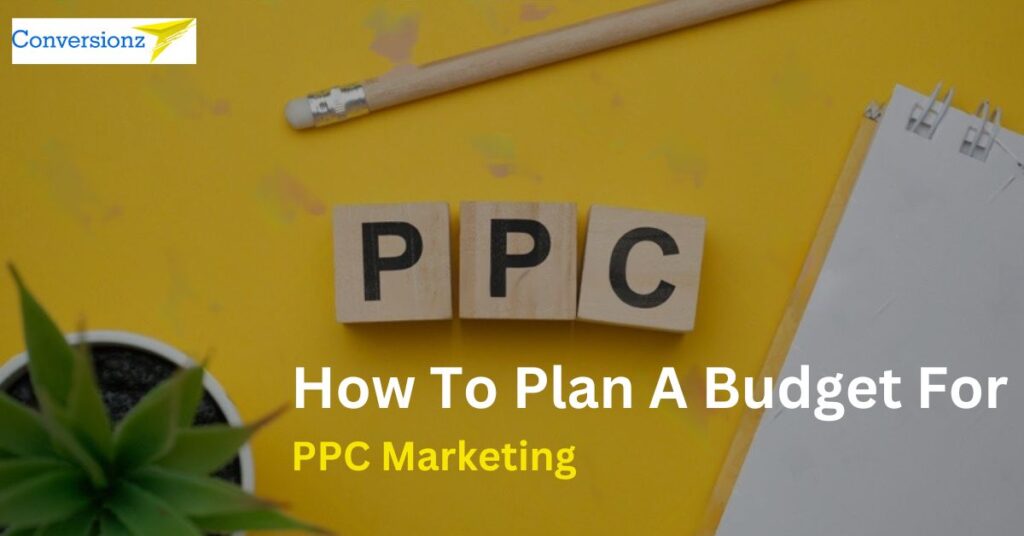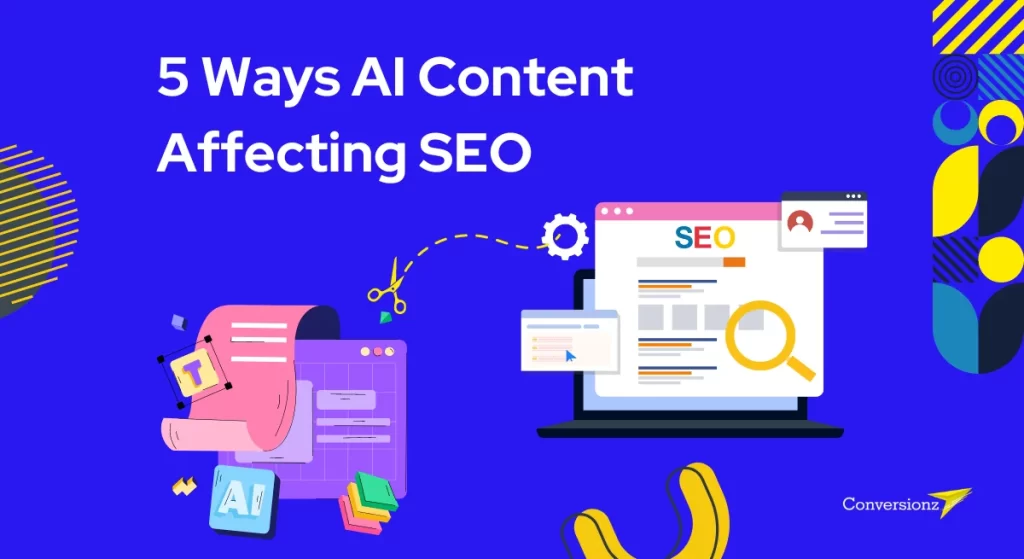Need help with your PPC marketing budget? We are with you! Many businesses need a strategy to dive into PPC, wasting money without relevant research and results. Without a clear budget, overspending drains your resources, and underspending misses opportunities. Start small, set clear objectives, test, and scale based on performance.
Track results regularly and adjust to avoid costly mistakes, ensuring every dollar leads to success. The solution continues with these few points! Let’s dive into the strategies to find the answer to your burning question “How to plan budget for PPC marketing”.
We'll Take You Through
How to Plan Budget for PPC Marketing: A Complete Guide
In today’s highly competitive digital landscape, planning a PPC marketing budget is essential for maximizing ROI and staying ahead. Without a clear strategy, it’s easy to overspend or miss valuable opportunities. This guide will walk you through key steps from basics to creating a well-structured budget that drives success in your campaigns.
Is Budgeting for PPC Marketing Important?
Obviously! It is a big YES! Proper budgeting for PPC enables you to use your resources optimally, cut unnecessary expenditures, and spend every dollar correctly towards achieving concrete results. This thereby allows for a constant optimization process, prevents overspending, and traces the performance, which ultimately leads to better success of a campaign and higher ROI.
Steps to Build a Winning PPC Budget Plan
The following are the steps that help to build a winning PPC budget from basics to advanced.
Step#1 Identify Your PPC Goals and KPIs
As you are planning a PPC budget, your goals should first be identified as they are what will shape your strategy and allocation to the budget. Normal objectives tend to be increasing brand awareness, driving traffic to the website, generating leads, or conversion of sales. After you have defined your objectives, you come up with what are known as KPIs that help measure the success of your campaigns.
For example, you might track impressions and reach if the goal is to raise awareness of your brand. In case your goal is lead generation, track metrics like cost per lead and conversion rates. Sales are your goal in other cases you can track metrics like CPA, ROAS, and CTR.
Keeping tabs on such KPIs (Keyword Performance Indicators) will be crucial because it opens an avenue for evaluating the efficiency with which your budget is being utilized and making informed changes that will boost performance. Regular tracking and analysis of KPIs ensure that PPC campaigns stay consistent with the goals and are in line for a positive return on investment (ROI).
Step#2 Estimate Expected PPC Costs
The planning of the PPC budget sometimes goes uneven because you did not estimate your expected PPC costs. For example, do you know how much each click will cost you? The CPC is different for different niches and targeted audiences, as well as the competitiveness of the keyword phrases where you place your ads. Conduct research into average cost per click for your industry, or use a tool like Google Keyword Planner to estimate.
What are your goals for your campaigns? Let’s go back to our above example. If you want 1,000 clicks, and the average CPC is $2, then you will be paying out $2,000. Be sure to take into account your daily and monthly budgets to not get too high and factor in tool expenses, manage fees if you are using a third-party PPC provider, and test different ad sets.
Then, balance your cost expectations with your return on investment (ROI) expectations. Take it even further with a clear view by calculating your cost-per-acquisition (CPA) so that you are justified in how much you’re spending because that would translate into the number of conversions or sales you can get.
Step#3 Define a Flexible Budget
To set a flexible budget for PPC marketing, begin with a modest allocation and gradually increase it based on performance data. Monitor key metrics like cost-per-click (CPC) and conversion rates to identify high-performing ads. Shift your budget to campaigns that yield the best results, ensuring optimal use of funds while avoiding unnecessary overspending on underperforming ads.
Step#4 Adjust for optimal performance
Optimization for Best Performance should be about regularly optimizing your PPC budget driven by data generated from the campaigns. Pay attention to key metrics such as CTR, cost per conversion, and ROAS and then you will budget the money to the best-performing keywords and ads while stopping or reducing spend on poor performers. Always continue trying to test new strategies, make some adjustments in bids, or refine targeting that might improve your results and further add up the ROI.
Key Factors Influencing PPC Marketing
Key factors that influence your PPC budget include the competitiveness of keywords, where high-demand keywords increase costs, your target audience, as more specific targeting, can raise bids and the ad platform you use, with each having varying costs. Additionally, your campaign goals (e.g., clicks, conversions) and the ad quality score will directly affect your overall budget.
Choosing the Right Ad Platform
When choosing the right ad platform, consider your target audience and budget. Google Ads offers extensive reach and robust targeting options, making it ideal for businesses looking to attract a broad audience. It’s highly competitive but provides valuable analytics and high traffic potential.
Bing Ads, on the other hand, often has lower competition and cost-per-click (CPC), making it a cost-effective option for niche markets or older demographics. Evaluate your business goals, audience behavior, and budget to determine the most suitable platform for your PPC campaigns.
Understanding Keyword Costs and Bidding Strategy
Keyword costs in PPC are determined by the competitiveness of the keywords and the bidding strategy you choose. Highly competitive keywords typically have a higher cost-per-click (CPC). To manage these costs effectively, you can adopt different bidding strategies:
1. Manual Bidding
Manual bidding allows you to set specific bids for each keyword, giving you complete control over your PPC campaigns. This approach is ideal for advertisers who understand their target audience and can adjust bids based on performance data. However, it requires consistent monitoring and can be time-consuming.
2. Automated Bidding
Automated bidding uses algorithms to optimize bids in real time, reducing the need for manual adjustments. This strategy is efficient and ideal for maximizing results while saving time. However, careful oversight is required to ensure that budget limits are respected and performance goals are met.
To control costs, focus on long-tail keywords, which are less competitive and often cheaper, and regularly monitor performance to adjust bids as needed.
The Role of Audience Targeting in PPC Budgeting
Automated bidding uses algorithms to optimize bids in real time, reducing the need for manual adjustments. This strategy is efficient and ideal for maximizing results while saving time. However, careful oversight is required to ensure that budget limits are respected and performance goals are met.
To control costs, focus on long-tail keywords, which are less competitive and often cheaper, and regularly monitor performance to adjust bids as needed.
Tools to Help You Manage Your PPC Spend
The best PPC budget calculators include Google’s Keyword Planner, WordStream’s PPC Advisor, and HubSpot’s PPC Calculator, helping businesses estimate costs, allocate budgets, and optimize advertising strategies effectively.
PPC Software for Cost Control
Google Ads offers budget setting, bid strategies, and ad scheduling for direct PPC cost control, while SEMrush provides keyword research, competitor analysis, and ad optimization insights, helping you optimize campaigns and reduce unnecessary spending for better ROI.
Book A Call With Us!
Let's explore how we can help you to Plan you Budget for PPC Marketing and to bring down the potential marketing cost
How to Maximize ROI from Your PPC Budget
Maximize PPC ROI by targeting the right audience, optimizing keywords and ad copy, using automated bidding, refining ad schedules, improving landing pages, and regularly monitoring campaign performance to reduce wasted spend.
Budget Adjustments Based on Campaign Performance
Adjust PPC budgets by analyzing historical performance, tracking key metrics like CTR and CPC, reallocating funds to high-performing campaigns, optimizing low-conversion areas, and forecasting based on projected future results.
Testing and Refining Ads
Test and refine ads by A/B testing headlines, CTAs, and targeting. Optimize based on performance data, improve Quality Score, and allocate budget to high-converting ads for better ROI and lower costs.
Deciding How to plan Budget for PPC Marketing is key to success
Knowing how to plan budget for PPC marketing is crucial for achieving long-term success. Start by setting clear goals and determining your target audience to ensure your budget is allocated effectively. Perform thorough keyword research and analyze historical performance data to identify high-performing campaigns and areas for improvement.
Utilize automated bidding strategies and continuously test and refine your ads to increase conversions and lower costs. Regular monitoring and adjusting based on performance metrics will ensure that your PPC budget is spent efficiently. With these strategies, you’ll maximize ROI and make your PPC marketing campaigns more cost-effective and impactful.




